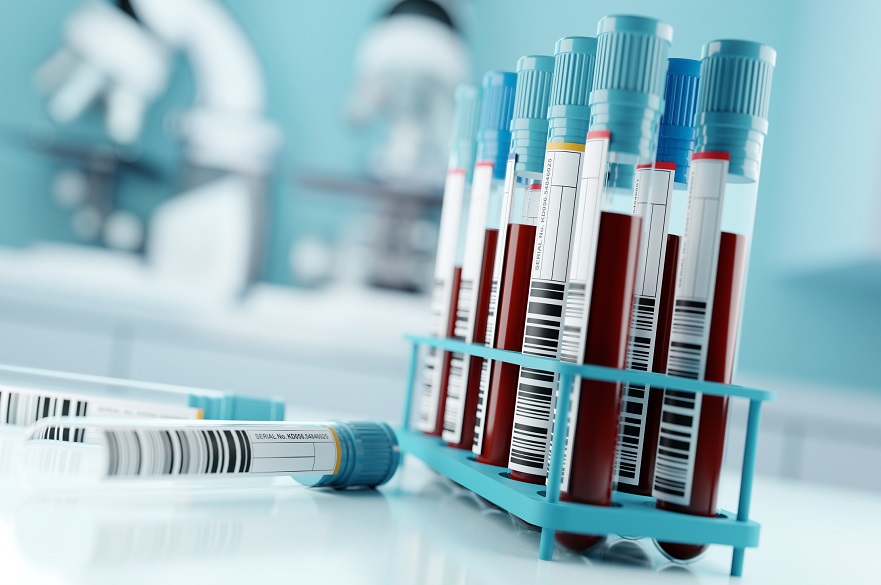Fighting aggressive blood cancer ages and exhausts immune cells, study shows
The most aggressive form of blood cancer ages immune cells and drives them to exhaustion, to the point where their ability to fight the disease is significantly impaired, a new study suggests.
By Dave Rogers | Published on 28 November 2022
Categories: Press office; Research; School of Science and Technology;

Scientists at Nottingham Trent University and Johns Hopkins Medicine’s Sidney Kimmel Comprehensive Cancer Center in the US found that as a result patients with acute myeloid leukaemia (AML) are often unlikely to respond to treatment.
AML progresses quickly, is very difficult to treat and has a high relapse rate – just one in five patients survive beyond five years of their diagnosis.
The team studied tumour samples from almost 2,000 patients with AML along with a wide range of existing data, finding that cancer cells promoted ageing and exhaustion of the immune system, a process known as ‘senescence’.
This process can prevent immune cells from killing more cancer cells and favours leukaemia growth.
As part of the study, the researchers identified a genetic signature of immune dysfunction and they were able to distinguish between high and low levels of tumour-induced exhaustion.
They found that the survival rates of people with highly exhausted immune cells and who had undergone chemotherapy was on average more than seven months shorter than that of those with low levels of cell exhaustion.
And patients with highly exhausted immune cells had been less likely to respond to immunotherapy than other patients, surviving for just over four months while those with low levels of exhaustion survived for more than 15.
While immunotherapy – the process of using a person’s own immune system to fight cancer – is a standard treatment for many forms of cancer, the researchers argue that immunotherapies have so far yielded disappointing results for patients with AML.
It is hoped that, as well as better predicting which patients will respond better to treatment, the work could pave the way to finding novel ways of reinvigorating the immune system and tackling the poor function of the immune cells responding to AML.
It could also lead to the development of more personalised treatments for those patients who are most likely to benefit and can stay in remission, the researchers say.
“The immune system does not work as it should in patients with acute myeloid leukaemia,” said Professor Sergio Rutella, Director of the John van Geest Cancer Research Centre at Nottingham Trent University.
He said: “We have found that immune cells are functionally exhausted and that this associates with poor response to treatment. Although many patients have had their lives extended using drugs that act on immune cells, oncologists need to better predict who will respond and why.
“There is an urgent need to move away from a ‘one-size-fits-all’ approach and to develop more rational biology-driven therapies that take a patient’s own genetic make-up into consideration.”
The researchers hope that the knowledge gained from the AML study could cross-fertilise efforts on other blood cancers that are known to derive benefit from immunotherapy, including lymphoma, as well as solid tumours. The study showed, for instance, that a specific set of immune genes originally identified in patients with AML can effectively predict patients with melanoma who would respond to immunotherapy.
The study, which also involved Children’s Hospital of Philadelphia, Technische Universität Dresden in Germany and the Princess Margaret Cancer Centre in Canada, is published in the Journal of Clinical Investigation.
Notes for Editors
Press enquiries please contact Dave Rogers, Public Relations Manager, on telephone +44 (0)115 848 8782, or via email.
Nottingham Trent University (NTU) received the Queens Anniversary Prize for Higher and Further Education in 2021 for cultural heritage science research. It is the second time that NTU has been bestowed the honour of receiving a Queen’s Anniversary Prize for its research, the first being in 2015 for leading-edge research on the safety and security of global citizens.
The Research Excellence Framework (2021) classed 83% of NTU’s research activity as either world-leading or internationally excellent. 86% of NTU’s research impact was assessed to be either world-leading or internationally excellent.
NTU was awarded The Times and The Sunday Times Modern University of the Year 2023 and ranked second best university in the UK in the Uni Compare Top 100 rankings (2021/2022). It was awarded Outstanding Support for Students 2020 (Times Higher Education Awards), University of the Year 2019 (Guardian University Awards, UK Social Mobility Awards), Modern University of the Year 2018 (Times and Sunday Times Good University Guide) and University of the Year 2017 (Times Higher Education Awards).
NTU is the 5th largest UK institution by student numbers, with nearly 39,000 students and more than 4,400 staff located across five campuses. It has an international student population of 7,000 and an NTU community representing over 160 countries.
Since 2000, NTU has invested £570 million in tools, technology, buildings and facilities.
NTU is in the UK’s top 10 for number of applications and ranked first for accepted offers (2021 UCAS UG acceptance data). It is also among the UK’s top five recruiters of students from disadvantaged backgrounds and was the first UK university to sign the Social Mobility Pledge.
NTU is ranked 4th most sustainable university in the world and 1st in the UK for sustainability-themed Education and Research in the 2021 UI Green Metric University World Rankings (out of more than 900 participating universities).